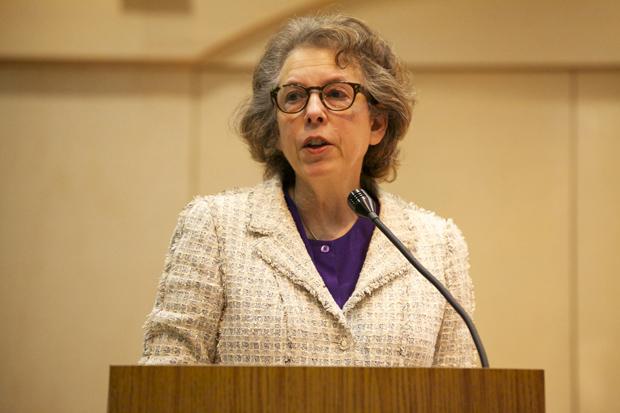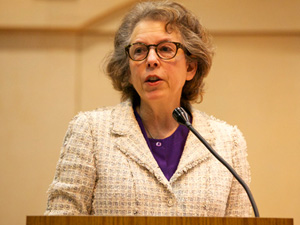
Five representatives of various religions came together in Cypress Hall Monday to deliver a panel discussion on spiritual activism as a part of the Civil Discourse and Social Change Initiative.
The purpose of the discussion was to encourage using spirituality as a means to end social injustices including environmental abuses, racism and economic disparities.
Maestra Olivia Chumacero of the Raramuri indigenous tradition focused on using spirituality as a means to connect to the earth and help end abuses against the environment.
“We are the ones who have created a system that destroyed Mother Earth for pleasure and for the system of making a profit,” Chumacero said. “We have the responsibility to walk on this planet and be responsible for flora and fauna.”
Rabbi Laura Geller related many of the struggles of the Jewish community to that of African-Americans during the Civil Rights Era of the 1960s. She said the tradition of Judaism supports actively helping any community, regardless of race or religion, when they are in need.
“It’s about connecting you to every other human being and every other living creature, which calls for a response,” Geller said. “That response is spiritual activism.”
Imam Shakeel Syed of the Islamic faith reflected on economic injustices that have occurred in recent years.
“Economic justice is the civil rights issue of our time,” Syed said. “Economic disparities have grown so fast. During the recession, Forbes added 200 new billionaires.”
Syed said the Quran places a great deal of emphasis on intentional deeds, and that these deeds are more productive when they are small, consistent deeds of good work as opposed to a passing burst of kindness.
Buddhist Larry Ward emphasized that loving kindness is a foundation in spiritual activism.
“Loving kindness is the capacity to be gentle, to be thoughtful, to be careful and kind,” Ward said.
Ward said this loving kindness needs to start with the self. Once an individual is aware of what is happening in and around them at every moment, he or she is then able to pass that loving kindness to others.
Reverend James Lawson, who worked alongside Dr. Martin Luther King Jr., posed a final question for the reflection on spiritual activism.
“There is a human wisdom that it is a task to find divinity in ourselves,” Lawson said. “Why do we make decisions then that invoke crisis?”
Lawson said the answer lies in one’s faith, no matter how they spiritually identify.
“(The panelists) have not tried to put labels on divinity (or) spirituality,” Lawson said. “But we all insist how you manage (your faith) is the task of transforming cruelty into care, torture into the possibilities of listening and truth.”






